Workshop on the Syntax and Semantics of Experiencers
Theoretical and Empirical Perspectives
Program
| 9.30 | Coffee |
| 10.00-10.15 | Introduction |
| 10.15-11.00 | György Rákosi (Debrecen): On backward and forward binding in experiencer constructions |
| 11.00-11.45 | Anne Temme (Berlin): Backward binding illusions? Psych-effects in theory and practice |
| --- Lunch break --- | |
| 13.30-14.15 | Rafael Marín (Lille): Stativity and agentivity in Spanish psychological verbs |
| 14.15-15.00 | Cathryn Donohue (Hong Kong): Dative experiencers in Basque |
| 15.00-15.45 | Tabea Reiner (München): Experiencer arguments of prospective psych verbs in German – how are they realized? |
| --- Coffee break --- | |
| 16.00-16.45 | Markus Bader (Frankfurt a. M.): Psych-verbs in language production - how special are they? |
| 16.45-17.30 | Elisabeth Verhoeven (Berlin): Verb class effects on word order – Evidence from a comparative corpus study |
| 17.30 | Discussion |
Workshop description
A large array of phenomena around verbal syntax is argued to be sensitive to thematic role distinctions. In particular, experiencer-objects have been shown to display non-canonical object properties (or even subject properties) concerning word order, binding and scopal relations, clitic doubling, etc. A straightforward account of these phenomena is to trace them back to the special status of experiencers in the hierarchical clause structure. At the same time, experiencers are very likely discourse topics and a subset of their particular properties (e.g., the experiencer-first generalization in linearization) may be accounted for through a purely pragmatic account.
This workshop addresses the following questions (among others):
- Which assumptions about syntactic structure account for the properties of psych verbs?
- What are the particular properties of the event structure of psych verbs and to what extent do they account for the syntactic properties of experiencer constructions?
- Which subset of the experiencer-related phenomena can be understood by discourse preferences alone?
- How can we test hypotheses about the particular status of experiencers by using precise methods (e.g., corpus studies, experiments, etc.)?
- How can we model the idiosyncratic lexical-semantic variation associated with individual predicates?
Workshop Recap
We wish to say thank you to everyone for this successful workshop and the fantastic insights.
Here are some impressions of the workshop:
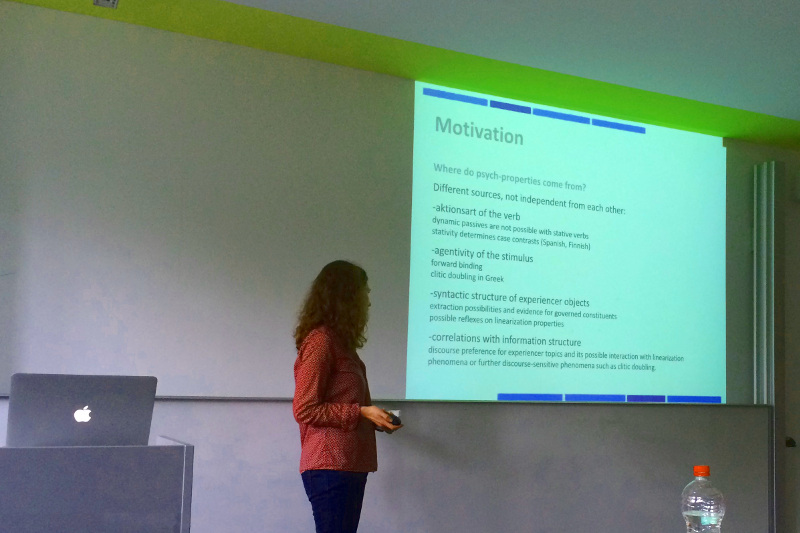 |
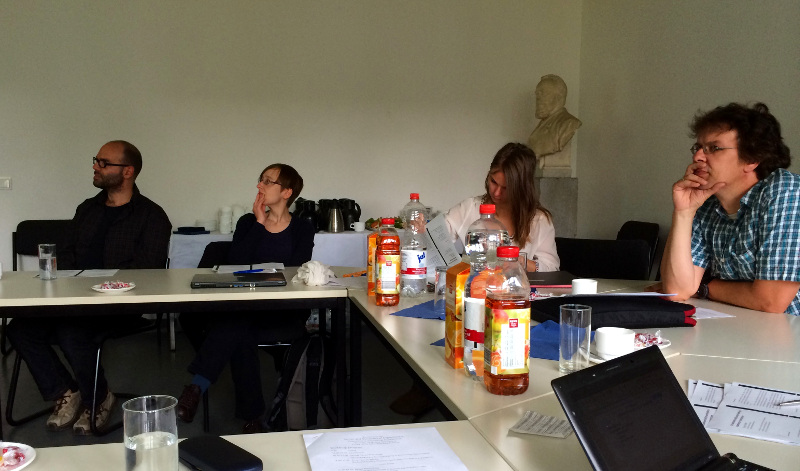 |
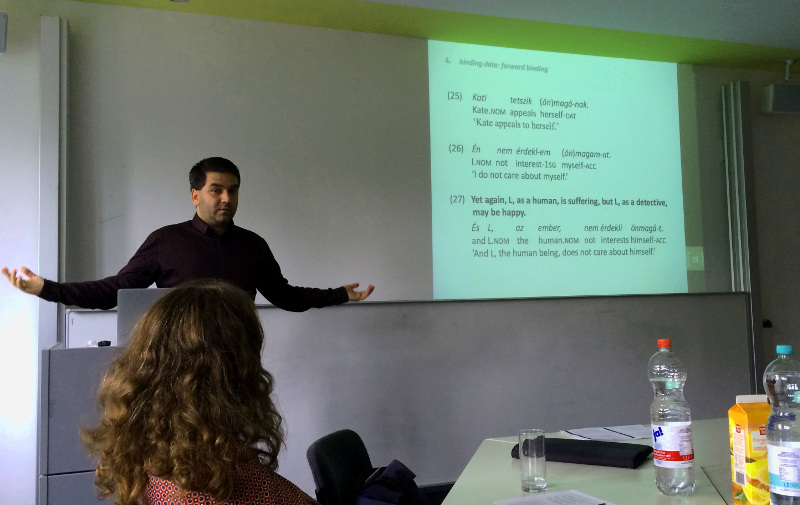 |
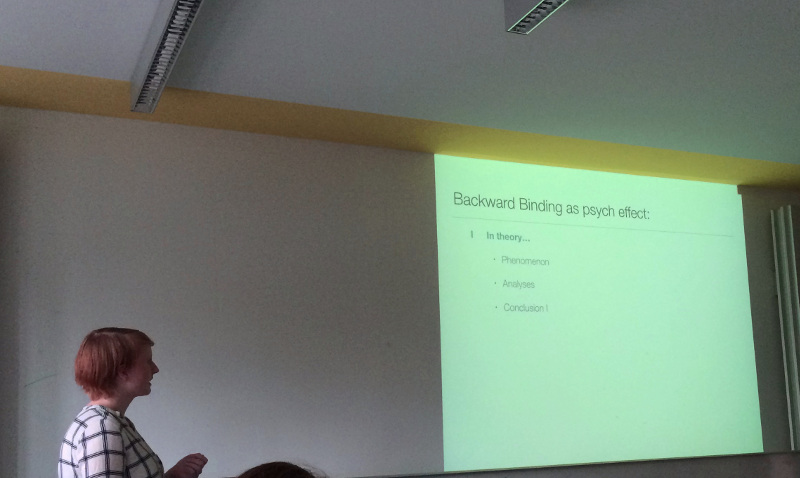 |
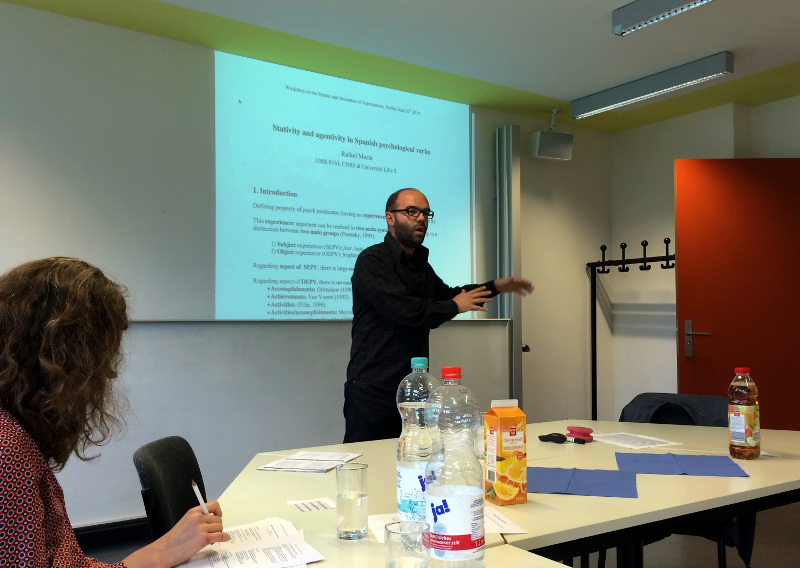 |
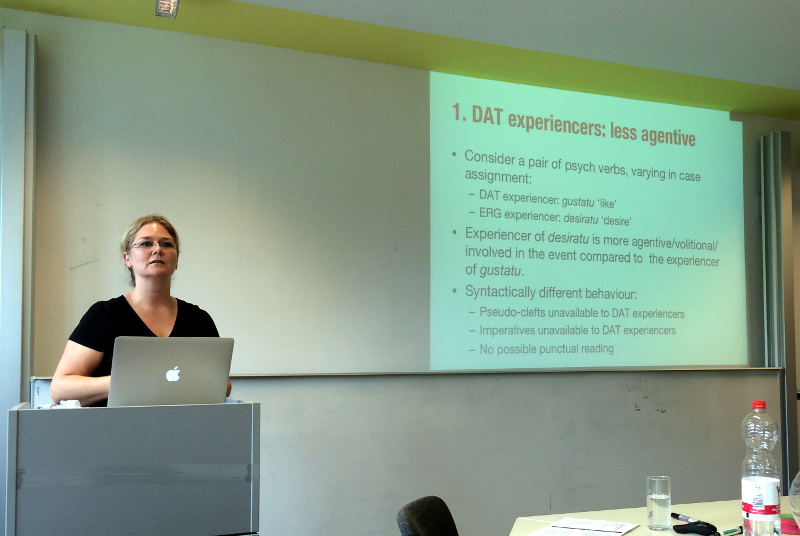 |
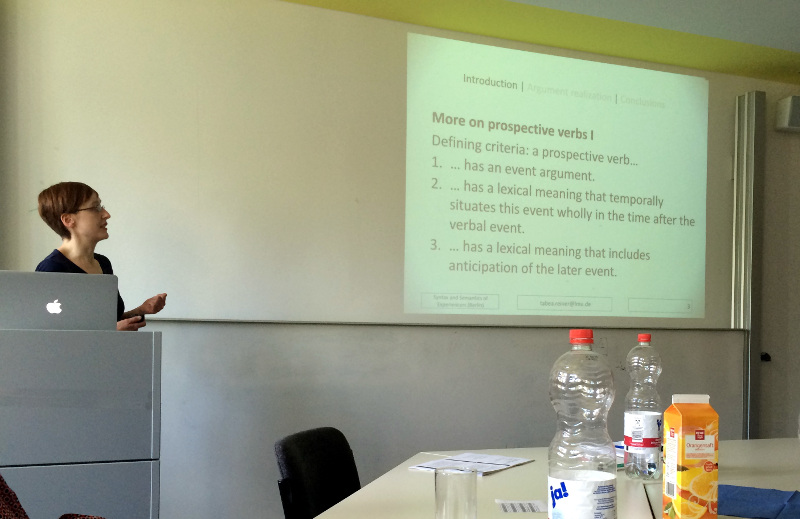 |
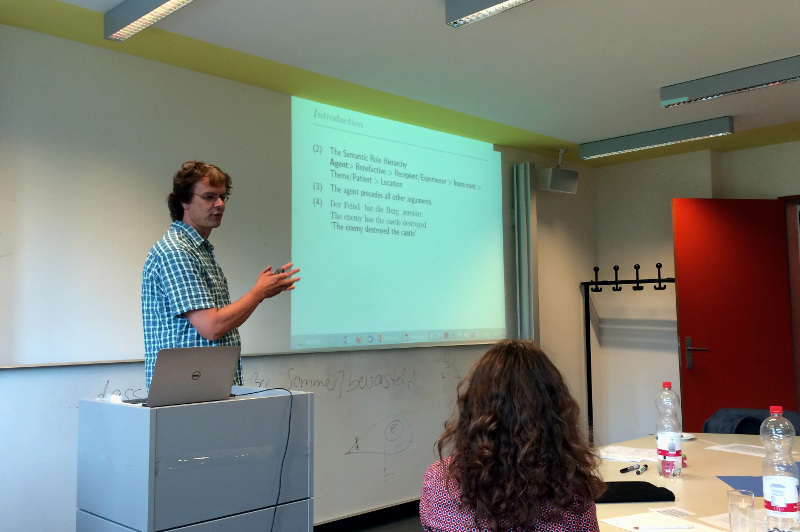 |
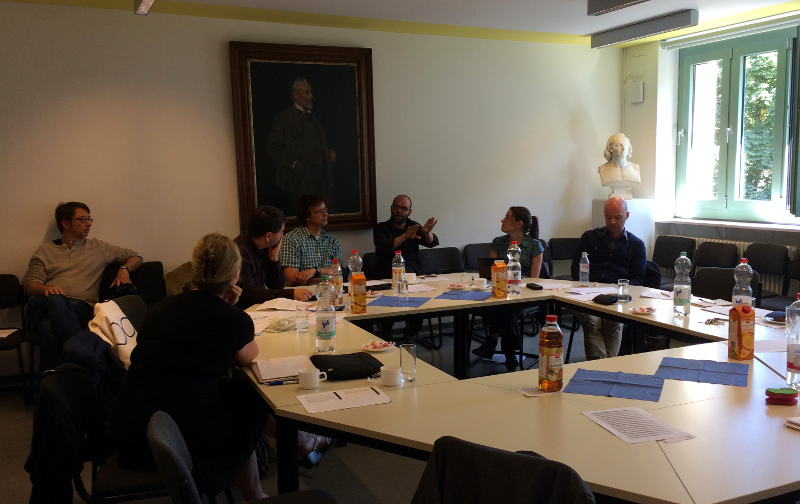 |
Thank you |




